Americans Living in Mexico, Expat Insider's Guide
Living in the Riviera Maya as an Expat
Are you considering the Riviera Maya for your new expat home? Understandably, it’s not just the climate and coastal allure calling you; it’s also the practicalities of affordability, thriving in a new culture, and finding community that are vital. Our insightful guide dives right into the essentials - real costs, setting up residence, and navigating the vibrant life here. Get ready for an honest and straightforward overview of what it really means to be living in the Riviera Maya as an expat.
Key Takeaways
- Riviera Maya offers expats a desirable quality of life with a vibrant culture, affordable cost of living, and a balance of luxury and simplicity amidst historical and natural beauty.
- There are various expedient visa options tailored to the needs of expats, alongside quality healthcare services and opportunities for cultural integration through language and volunteering.
- The region provides diverse housing choices, employment prospects especially in the tourism sector, and international schooling for expat families, all within a welcoming and relatively safe community.
Embracing the Expat Life in Riviera Maya

Stepping into a new life abroad, particularly in a vibrant region like the Riviera Maya, can be both thrilling and challenging. The Riviera Maya, developed as a prime tourist destination by the Mexican government in the 1970s, is now home to a thriving expat community. The region offers a desirable quality of life, thanks to its tropical climate that averages between 77-86 degrees Fahrenheit, perfect for year-round outdoor activities and scenic explorations.
However, the Riviera Maya is more than just a beautiful location. It’s a welcoming community of fellow travelers and locals, where high satisfaction levels among expats are reported due to:
- a vibrant culture
- a higher standard of living
- a unique blend of resort-style living and historical richness
- its proximity to ancient Mayan sites and Caribbean Sea views
In comparison to other popular expat destinations like San Miguel de Allende or the major city of Mexico City, the Riviera Maya offers a unique experience for those looking to live abroad.
Quality of Life
Living as an expat in the Riviera Maya involves immersing oneself in the great outdoors. The warm, tropical weather makes activities like swimming, sunbathing, and water sports a common pastime, contributing significantly to the high quality of life enjoyed by expats here. Here, the idea of a “comfort zone” takes on a new meaning. Instead of being confined indoors, the comfort zone extends to the sandy beaches, the clear blue waters, and the vibrant community.
A warm and welcoming expat community in the Riviera Maya fosters a strong sense of belonging. Living here offers expats:
- A rich cultural experience, from sunny skies to a history closely tied to the ancient Maya civilization
- An exquisite balance between luxury and simplicity, offering world-class dining options alongside quaint beach bars
- A lifestyle that is both relaxed and indulgent
Cost of Living
Even with a high quality of life, the cost of living in the Riviera Maya is typically more affordable than in the U.S. or Canada. This cost-effective living is one of the major attractions for expats, allowing them to enjoy a tropical lifestyle without breaking the bank.
Beachfront properties in Riviera Maya may have higher rental prices, but more affordable options can be found a few blocks inland. Monthly expenses for utilities and services are manageable, and even luxuries like twice-weekly maid services can be enjoyed without a hefty price tag. The cost of living here means that retirees can live comfortably, with a couple able to retire on an average of $2,000-$2,500 a month depending on lifestyle choices.
Popular Expat Destinations in Riviera Maya
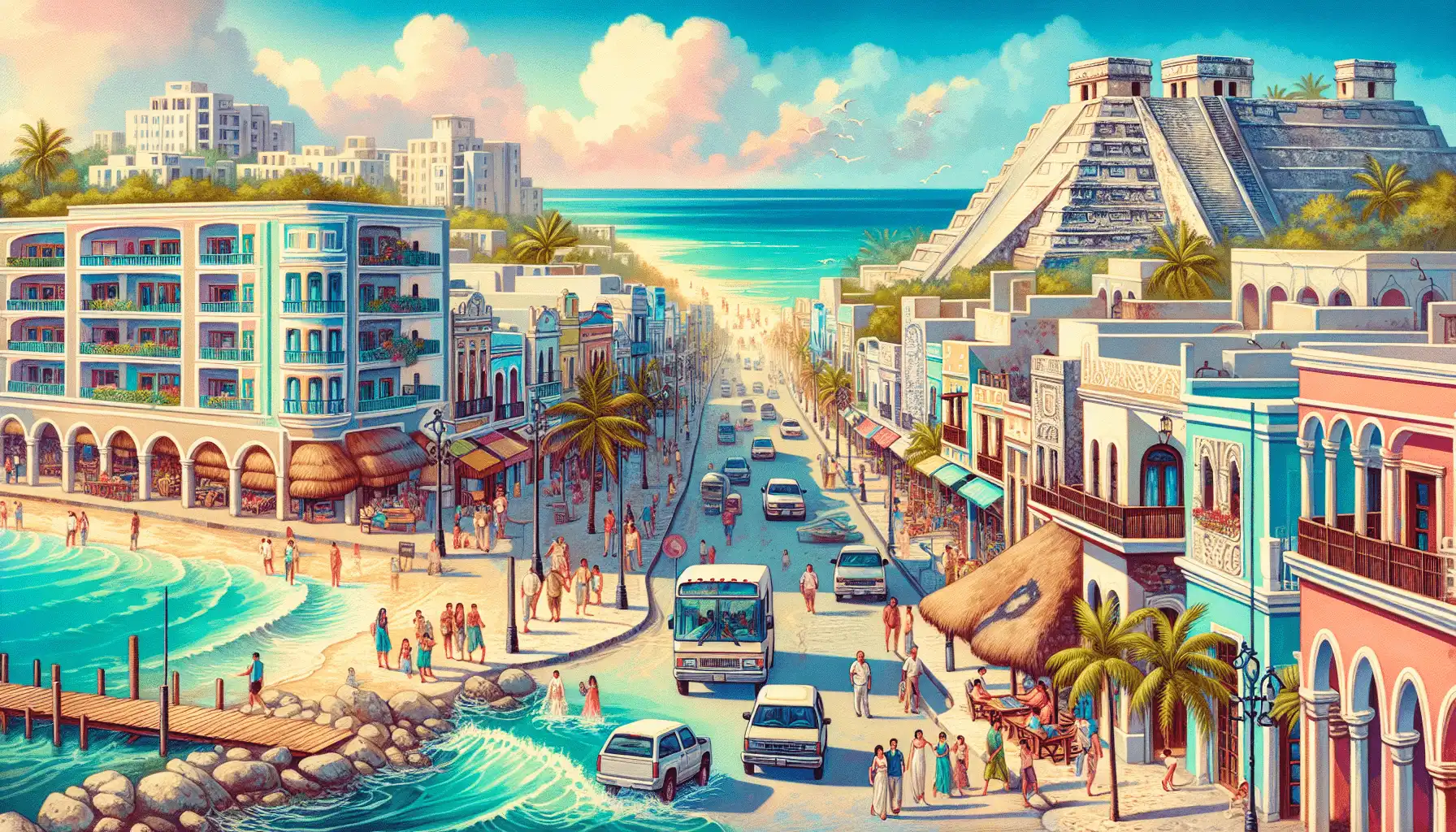
Far from being a one-size-fits-all destination, the Riviera Maya boasts a variety of locales, each radiating its own charm and appeal, thereby catering to expats with diverse preferences. From the vibrant hub of Playa del Carmen to the tranquil and eco-friendly lifestyle in Akumal, there’s a place for everyone.
Playa del Carmen, known as Playa, is a bustling seaside city with beautiful beaches, a stable infrastructure, and a vibrant nightlife centered around La Avenida Quinta. Tulum, on the other hand, offers a quieter beach experience, known for its eco-friendly culture and affordable living costs.
Akumal, appreciated for its tranquil lifestyle and clear bay perfect for diving and snorkeling, is growing its social scene with beach bars, restaurants, and ecological volunteer work opportunities. For those seeking a blend of amenities and tranquility, Puerto Aventuras offers a gated community experience with homes, a town square, golf course, and beaches.
Navigating the Visa Process
Relocating to the Riviera Maya entails getting through the visa process. Fortunately, Mexico offers a range of visas that cater to different needs and durations of stay. Some of the visa options include:
- Tourist visa: valid for a maximum stay of 180 days
- Temporary Resident Visa: valid for up to 4 years
- Permanent Resident Visa: allows for an indefinite stay
With these options, you can choose the visa that best suits your needs and stay in the Riviera Maya.
The requirements for each visa type vary. For a Temporary Resident Visa, applicants need a monthly income of at least USD $4,350 or a minimum savings/investment balance of USD $73,200. For a Permanent Resident Visa, applicants require a monthly income of at least USD $7,300 or a minimum balance of USD $293,000 over the last 12 months. The visa application process is a two-step procedure that begins at a Mexican embassy or consulate outside Mexico and concludes with obtaining a residency card within 30 days of arrival in Mexico.
If you’re planning on working in Mexico, it’s important to ensure you meet the requirements for either temporary or permanent residency.
Healthcare and Medical Facilities
When selecting an expat destination, healthcare is a pivotal factor to consider. The Riviera Maya region boasts high-quality medical facilities including the Hospiten in Playa del Carmen, Cancun, the Costamed group’s clinics, and the internationally accredited Galenia Hospital in Cancun, catering to a broad range of medical specialties such as cardiology, dermatology, and oncology.
Healthcare in the Riviera Maya offers the following benefits:
- High-quality care
- Affordable prices
- English-speaking doctors
- House call services
- Mobile medical services like IV hydration therapy and COVID-19 testing at patients’ locations
These services, available at the post office, offer limited access to private rooms for expats, tourists, and locals alike.
For permanent residents, there is the option to join the national healthcare systems IMSS or INSABI, allowing access to public healthcare services without the need for a work permit.
Learning Spanish and Embracing Local Culture
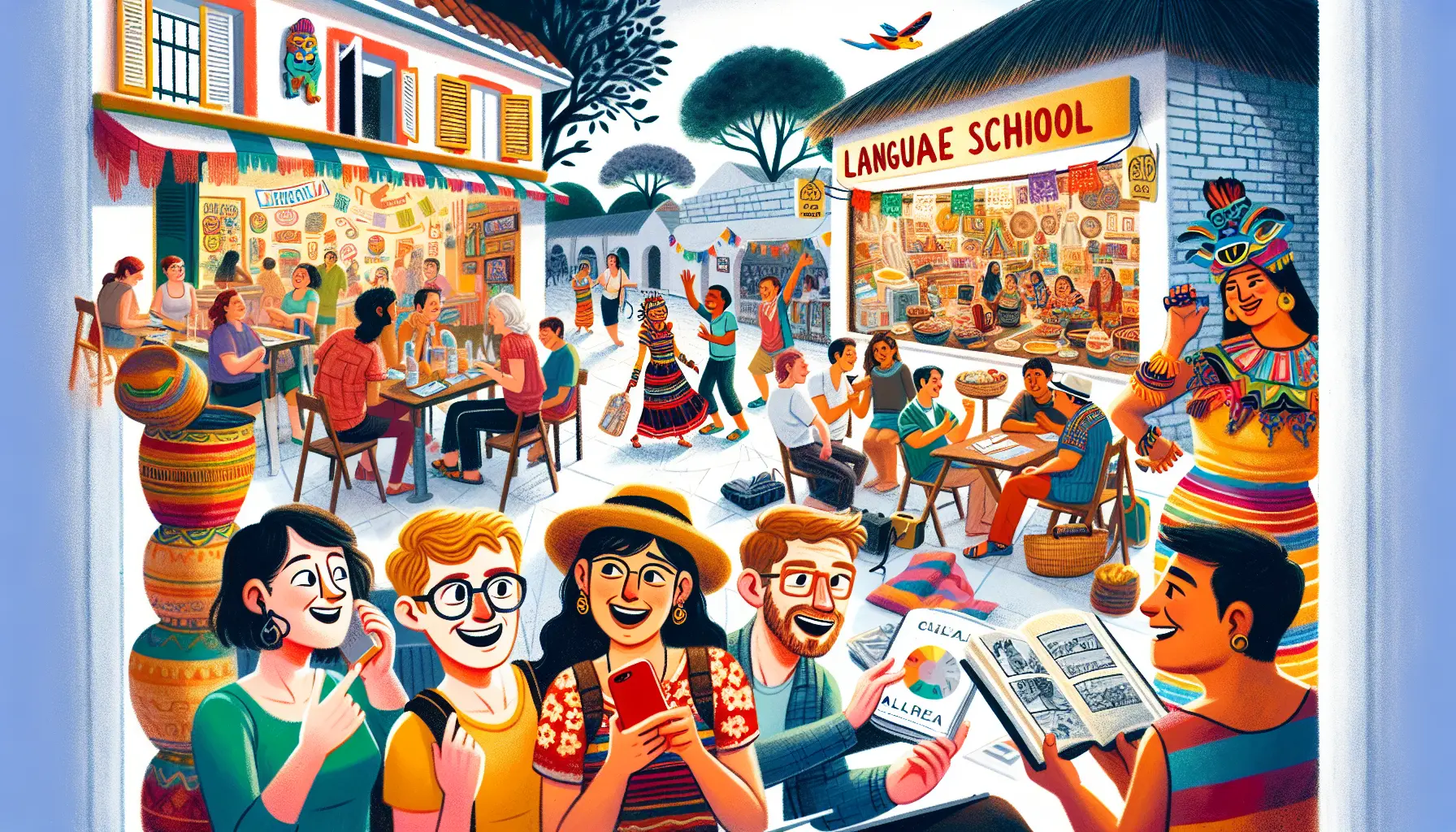
Although a significant number of Mexicans in the Riviera Maya speak English, gaining proficiency in Spanish can drastically enrich the expat experience by providing access to local entertainment and minimizing feelings of isolation. Thankfully, learning Spanish as an expat is easier than ever with a multitude of resources available. Expats can learn Spanish through online platforms like Preply for live classes, as well as through international Spanish language schools such as the Cervantes Institute, Berlitz, and Language International.
Learning a new language is not just about grammar and vocabulary; it’s about immersing oneself in the culture and lifestyle of a new country. Attending local markets, participating in local conversation clubs, and engaging with the local language through media like radio, TV, and movies can lead to a more authentic language learning experience.
Embracing the local culture is another crucial aspect of the expat life in Riviera Maya. Attending live music performances, cultural festivals, and celebrating Mexican holidays such as Day of the Dead helps expats connect with the culture of Riviera Maya.
Expats living abroad can also engage with the community and foster cultural exchange by volunteering with local charities and organizations.
Housing Options for Expats
Securing a suitable residence ranks among the initial steps towards settling into the Riviera Maya as an expat. Whether you’re looking for a second home, a vacation getaway, or an investment property, the Riviera Maya offers a range of options to choose from. The proximity to beaches, restaurants, and shopping centers, as well as the potential for property appreciation, are factors to consider when choosing a home.
Understanding local zoning and building regulations is also crucial for compliance and to avoid development limitations. Property management services are readily available in the region, assisting with tenant acquisition, maintenance, and financial handling, making it easier for expats to manage their properties.
Employment Opportunities and Remote Work
Expats can find a plethora of job opportunities in the Riviera Maya, particularly in the tourism industry encompassing sectors like:
- hotels
- travel agencies
- tour operations
- restaurants
Specialized roles in airlines, cruise ships, and Mexico’s growing medical tourism sector also offer several employment options for expatriates.
Language teaching, especially of foreign languages like teaching english, emerges as an available field for expats, while multilingual proficiency enhances job prospects in the tourism-focused regions of Cancun. However, it’s important to note that working in Mexico legally requires a working visa, which involves obtaining a job offer from a Mexican employer first.
On the other hand, remote work is becoming increasingly popular among expats, with Mexico offering a variety of settings for remote workers who are moving abroad.
Education and International Schools
Education stands as a key consideration when relocating abroad with children. In Mexico, education is compulsory for all children, beginning at the age of 6. Secondary education, also referred to as lower secondary, is compulsory for 3 years and follows 6 years of primary education. High school offers three options: General upper-secondary, Technical professional education, and Technological upper-secondary; it spans 3 years and is not mandatory.
The grading system in Mexican schools operates on a scale from 1 to 10, with 6 being the minimum passing grade. For expat families, there are also international schools available that offer curriculum based on other countries’ education systems, offering a familiar learning environment for expat children.
Safety and Security in Riviera Maya
For anyone contemplating a move abroad, safety is a foremost concern. Riviera Maya is a part of Mexico’s Yucatan Peninsula, which boasts a lower intentional homicide rate than the United States average, reinforcing its position as a relatively safe destination. The locals in Riviera Maya are known for being welcoming to expats, contributing to their sense of security.
However, like any place in the world, the Riviera Maya has its share of risks. Common risks for expats include swimming accidents, excessive alcohol consumption, and motor vehicle accidents, but awareness and caution can help mitigate these risks. Practical measures such as using dummy wallets to thwart pickpockets, keeping actual cash in money belts, and utilizing hotel safes can enhance personal security.
Social Life and Networking for Expats
Establishing a social network forms an integral part of adapting to a new life abroad. The Riviera Maya offers plenty of opportunities to meet new people and form meaningful connections. Engaging in local cultural events, like annual international carnivals and parades, provides expats with opportunities to immerse themselves in the regional festivities and interact with the community. Popular spots like Mamitas Beach Club, Initia Beach Club, and tours around Tulum ruins or Dos Ojos Cenotes offer hotspots where expats routinely socialize and develop their networks.
Joining clubs and participating in regular events such as Ladies Nights, and volunteering with local charities are fruitful ways for expats to meet others with similar interests. Online platforms also offer invaluable resources for expats to ask questions, share experiences, and plan meet-ups. While forming new connections is crucial for a fulfilling expat experience, it is also important to build friendships cautiously, particularly with those recently met, to ensure personal safety and positive interactions.
Adapting to Challenges and Overcoming Obstacles
Relocating to a foreign country, like the Riviera Maya, can be a gratifying venture, albeit accompanied by its unique challenges. This new country has its own unique cultural nuances that can initially cause culture shock. This includes:
- the ‘land of mañana’ attitude that can affect planning and task completion
- unfamiliar local greetings like kissing on the cheek
- a culture of tolerance in lifestyle diversity
Adapting to these cultural differences takes time and patience. Here are some key aspects to consider:
- Understanding politeness practices in Mexico and the central role of family can aid in smoother community integration.
- Adapting to the vibrant and musical culture can mean getting used to higher noise levels.
- Dealing with the extensive paperwork required in Mexico can be a significant obstacle, especially when the importance is placed on official stamps for documents.
However, to overcome initial culture shock and adapt to the new environment in Mexico, it is important to:
- Learn the language
- Engage with the community
- Stay connected with one’s home country
- Focus on the reasons for moving to Mexico
By following these steps, one can successfully navigate the challenges of living in a new culture.
Summary
The Riviera Maya is more than just a stunning tourist destination; it’s a place where expats can enjoy a high quality of life, embrace a vibrant local culture, and find a welcoming community. From enjoying the tropical climate and outdoor activities to navigating the visa process and adapting to a new culture, life in the Riviera Maya offers a unique and rewarding experience.
Whether you’re drawn to the bustling energy of Playa del Carmen, the tranquil lifestyle in Akumal, or the eco-friendly culture in Tulum, the Riviera Maya has something for every expat. With the right preparation, awareness, and open-mindedness, you can make the most of this tropical paradise. Here’s to starting your new life in the Riviera Maya, a place where life is not just lived, it’s celebrated.
Frequently Asked Questions
Where do expats live in Riviera Maya?
Expats in Riviera Maya often prefer to live in Playa del Carmen due to its low cost of living, high-quality healthcare, and strong sense of community, whether they seek a lively city center or a quiet residential area. It's no wonder that more expats are choosing Playa del Carmen as their home.
Do they speak English in Riviera Maya?
Yes, many people in the Riviera Maya speak English, particularly in areas related to tourism and hospitality. This makes it relatively easy for English-speaking visitors to communicate and get around.
Where in Mexico do most American expats live?
Most American expats in Mexico live in Lake Chapala, which hosts the largest community of US expats worldwide. Join the vibrant expat community there for a fulfilling experience!
What is the cost of living in the Riviera Maya?
Living in the Riviera Maya is generally more affordable than in the U.S. or Canada. A couple can live comfortably on $2,000-$2,500 a month, while a single person can live on about $1,500-$2,000, depending on their lifestyle choices.
How can I learn Spanish as an expat in the Riviera Maya?
You can learn Spanish as an expat in the Riviera Maya by using online platforms, attending language schools, participating in local conversation clubs, and immersing yourself in cultural activities and Spanish media. Embrace these opportunities to enhance your language skills and fully immerse yourself in the local culture.
Updated September 2, 2024

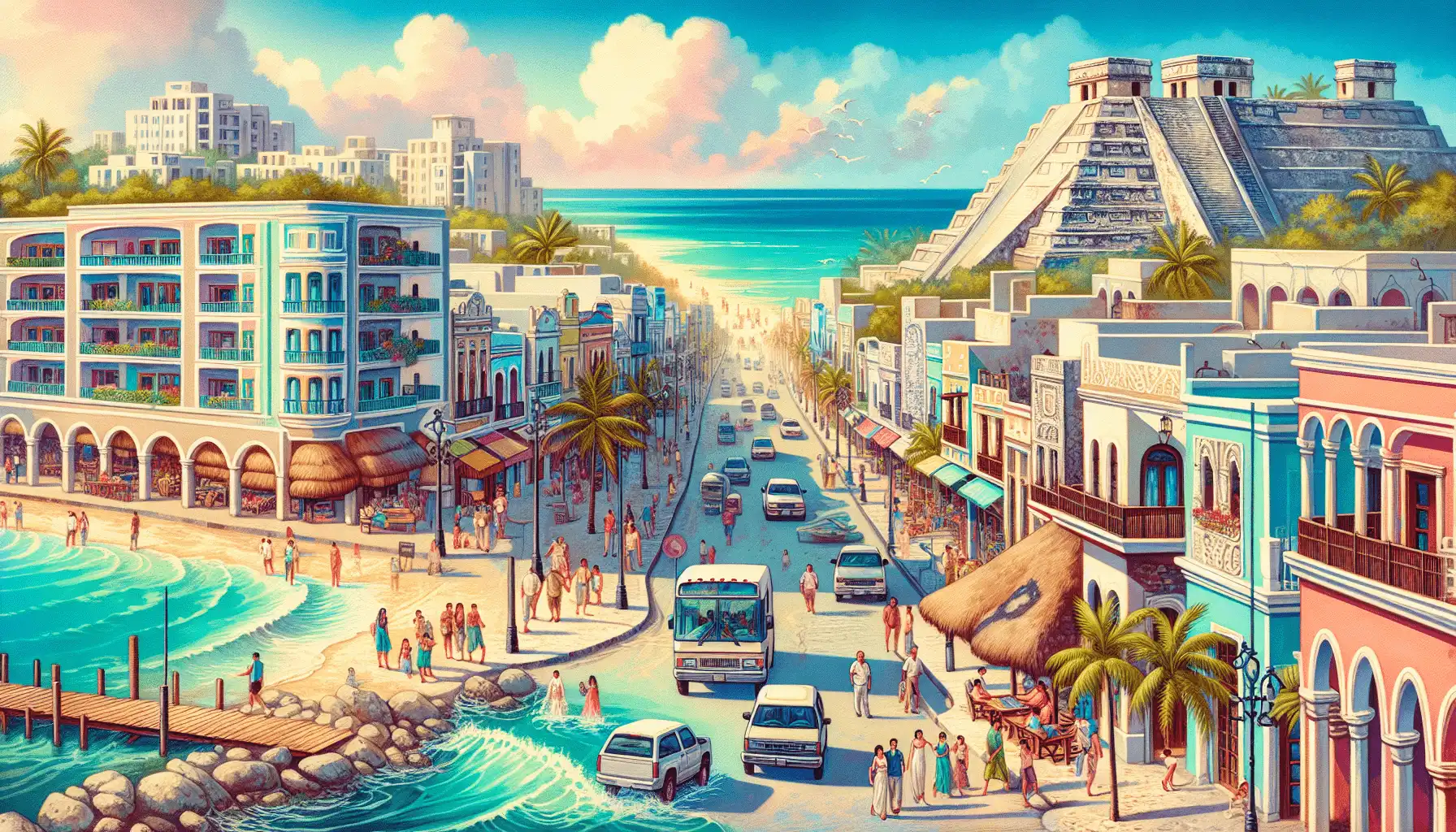
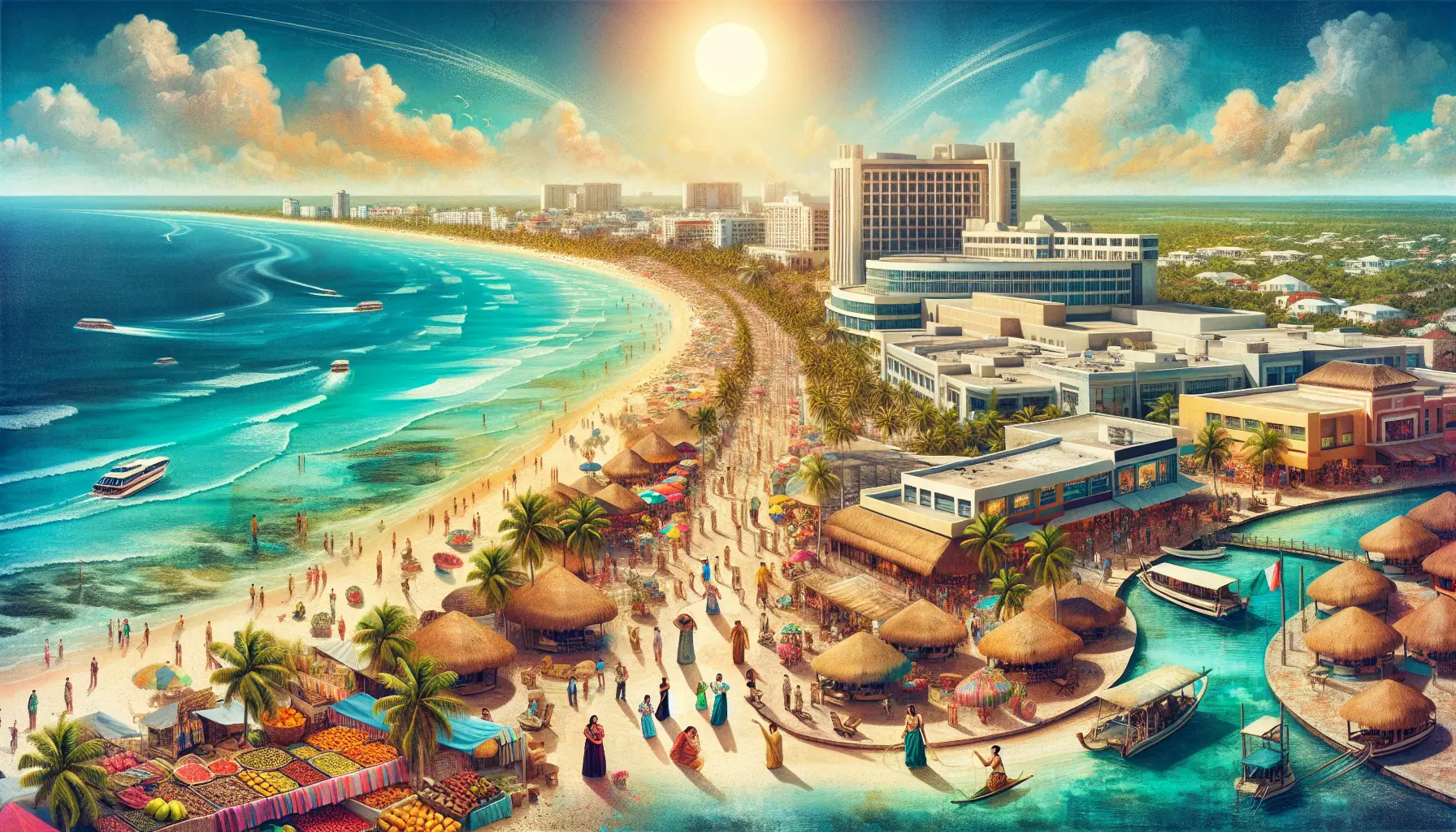
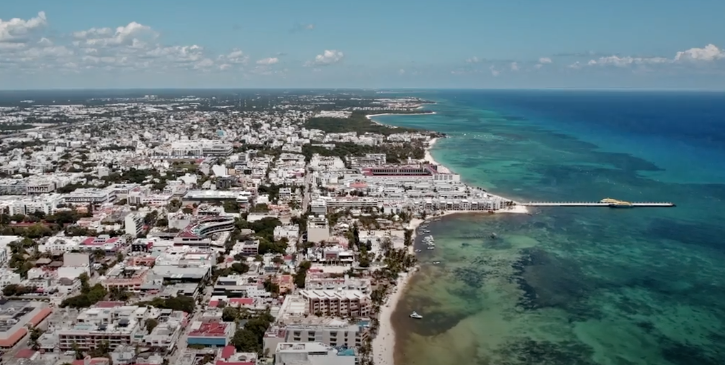
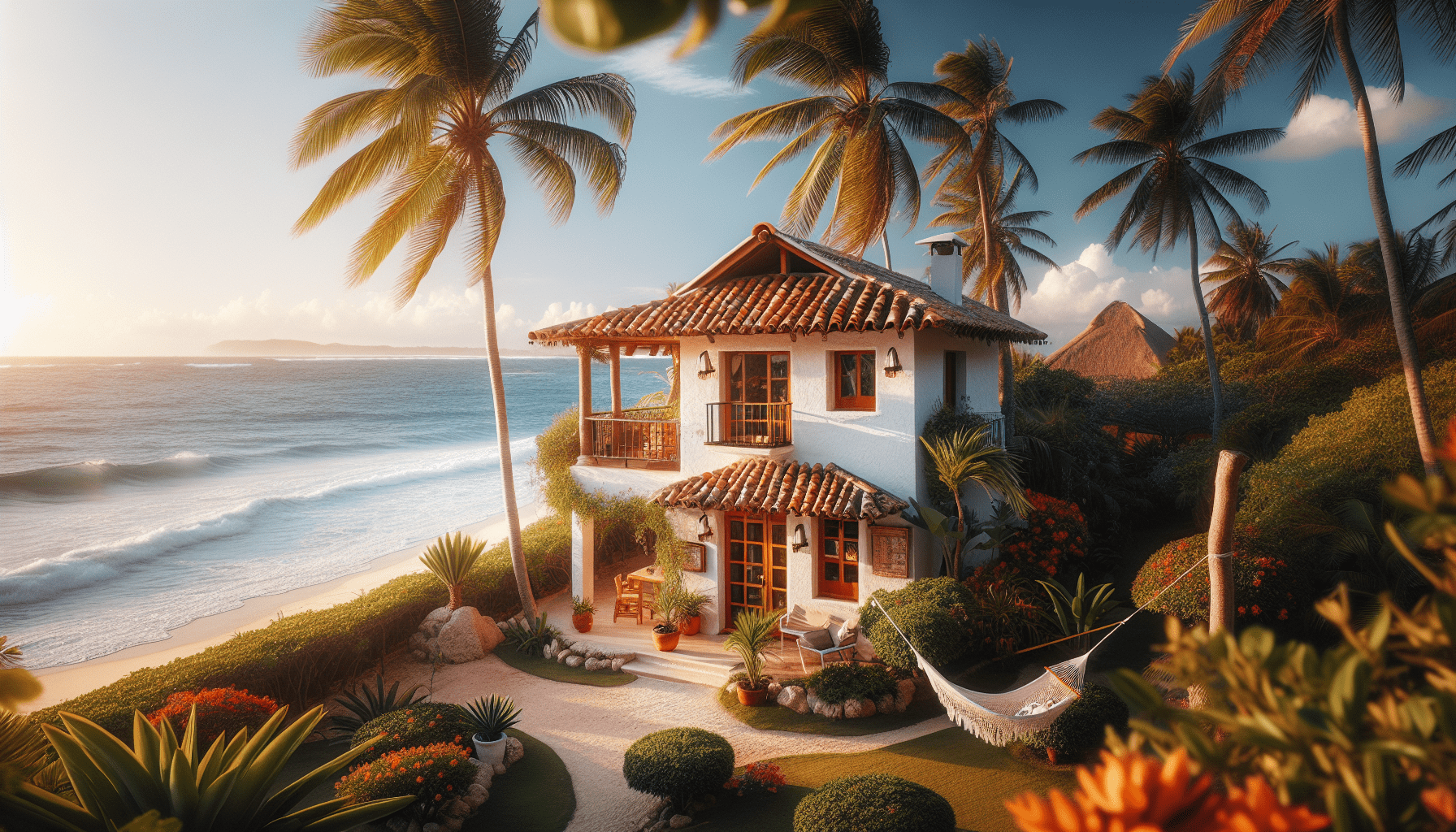
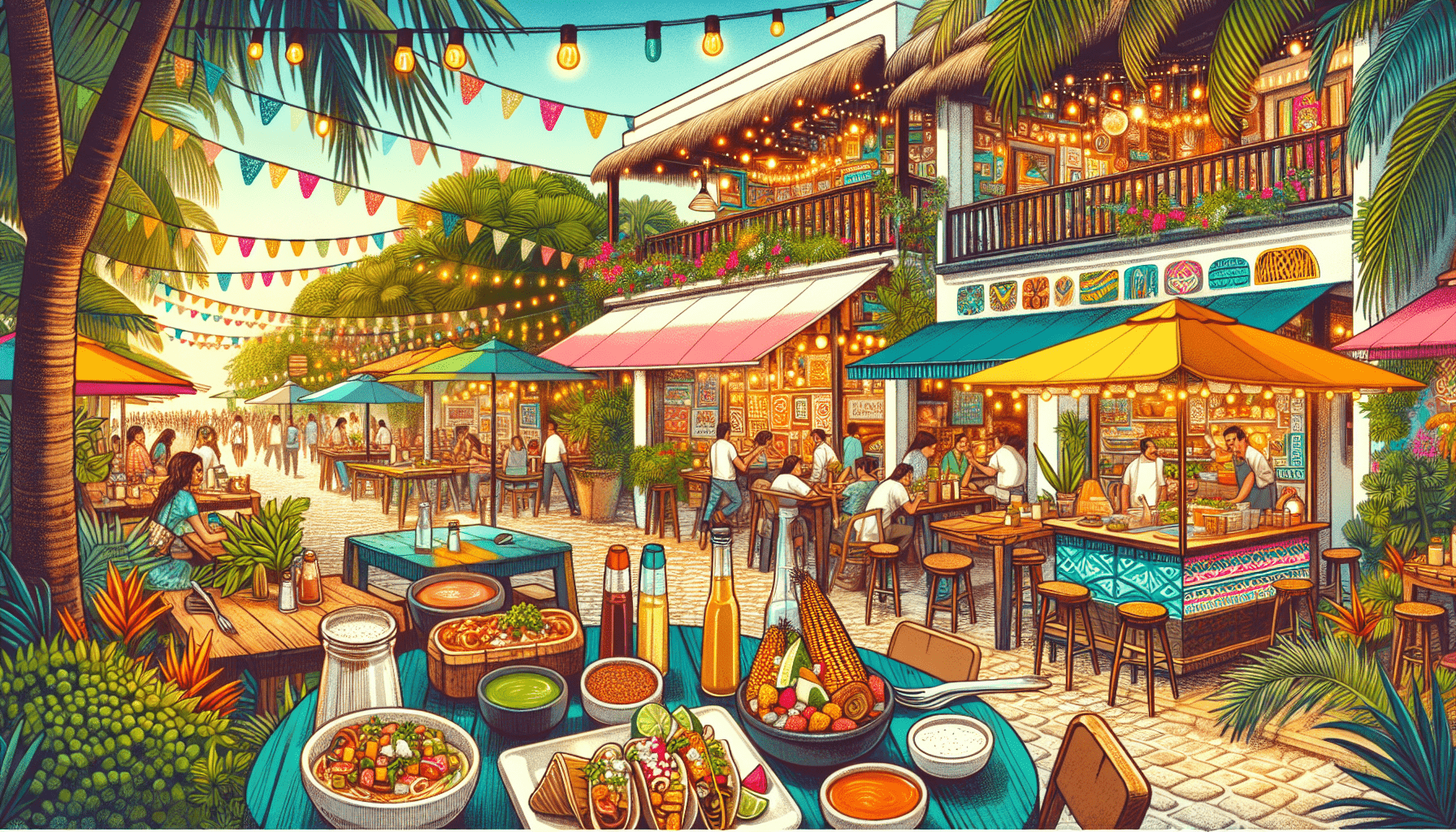

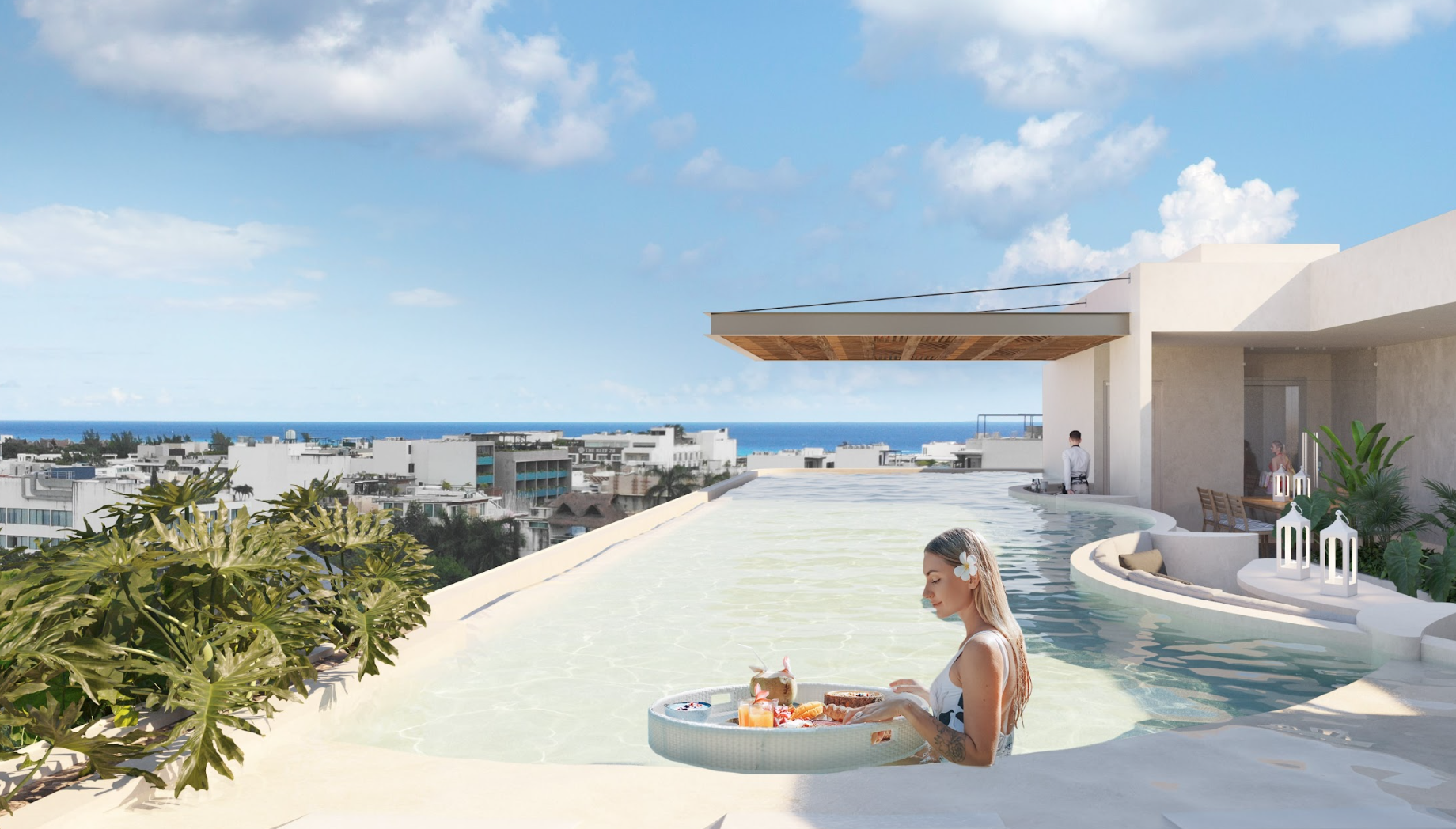
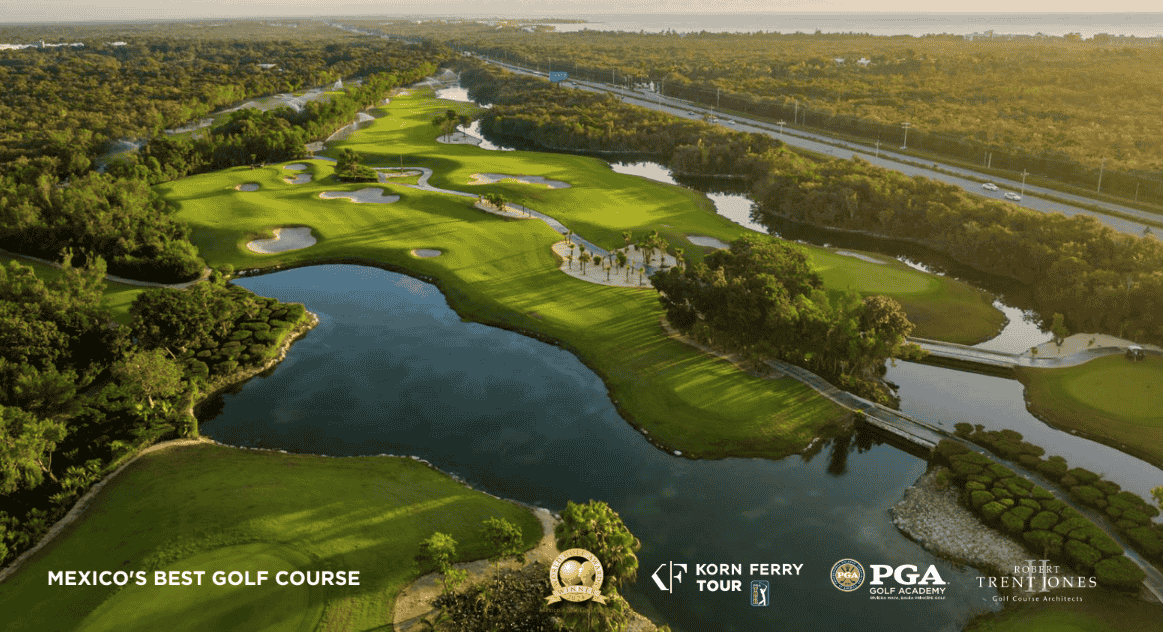
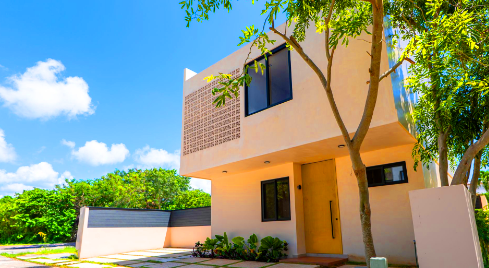


Comments (0)